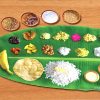Dr Benley George
Vice Principal, Pushpagiri College of Dental Sciences, Tiruvalla
Saliva is required by us to moisten and cleanse our mouth and digest food.Saliva also prevents infection by controlling bacteria and fungi in the mouth.When you don’t make enough saliva, your mouth gets dry and uncomfortable. Fortunately, many treatments can help against dry mouth, also called xerostomia.
Saliva has various functions.
- Cleaning effect of washing away food debris
- Makes swallowing food easier
- Antibacterial effect of fighting off bacteria entering the mouth
- Lubricating effect that protects mucous membranes
- pH buffering effect that prevents caries
- Effect of promoting remineralization of teeth
- Effect of protecting the tongue as a lubricant and developing the sense of taste
What Causes Dry Mouth?
Dry mouth affects about 10% of all people and is more prevalent in women than men. Dry mouth is caused by a number of reasons. Side effect of certain medications like drugs used to treat depression, anxiety, pain, allergies, and colds (antihistamines and decongestants), obesity, acne, epilepsy, hypertension (diuretics), diarrhea, nausea, psychotic disorders, urinary incontinence, asthma (certain bronchodilators), and Parkinson’s disease. Dry mouth can also be a side effect of muscle relaxants and sedatives.
Dry mouth can be a side effect of medical conditions, including Sjögren’s syndrome, HIV/AIDS, Alzheimer’s disease, diabetes, anemia, cystic fibrosis, rheumatoid arthritis, hypertension, Parkinson’s disease, stroke, and mumps.
Damage to the salivary glands, the glands that make saliva, can reduce the amount of saliva produced. For example, the damage could stem from radiation to the head and neck, and chemotherapy treatments, for cancer.
Dry mouth can be a result of nerve damage to the head and neck area from an injury or surgery.
Conditions that lead to dehydration, such as fever, excessive sweating, vomiting, diarrhea, blood loss, and burns can cause dry mouth.
Surgical removal of the salivary glands.
Smoking or chewing tobacco can result in dry mouth. Mouth breathers will also have the problem of dry mouth.
What Are the Symptoms of Dry Mouth?
Common symptoms of dry mouth include:
A sticky, dry feeling in the mouth
Frequent thirst
Sores in the mouth
Cracked lips
A dry feeling in the throat
A burning or tingling sensation in the mouth and especially on the tongue
A dry, red, raw tongue
Problems speaking or trouble tasting, chewing, and swallowing
Hoarseness, dry nasal passages, sore throat
Bad breath
Effects of dry mouth
Dry mouth raises your risk of gingivitis (gum disease), tooth decay, and mouth infections, such as thrush. In dry mouth the lack of saliva results in accumulation of food particles over the teeth and gums which contributes to dental decay and gingivitis. Dry mouth can also make it hard to wear dentures. Dry mouth can result in poor nutrition in the patient as the patient suffers from difficulty in chewing and swallowing.
How Is Dry Mouth Treated?
Incase medications are the reason for dry mouth then your doctor will substitute the medication thereby eliminating the problem. The doctor may also prescribe a mouth wash to restore mouth moisture. In mouth breathing patients the cause should be identified by your dentist and appropriate treatment should be obtained.
Some measures which can help improve saliva flow are:
- Suck on sugar-free candy or chew sugar-free gum.
- Drink plenty of water to help keep your mouth moist.
- Brush with a fluoridetoothpaste, use a fluoride rinse, and visit your dentist regularly.
- Breathe through your nose, not your mouth, as much as possible.
- Use an over-the-counter artificial saliva substitute.
- Avoid tobacco products and alcohol

































